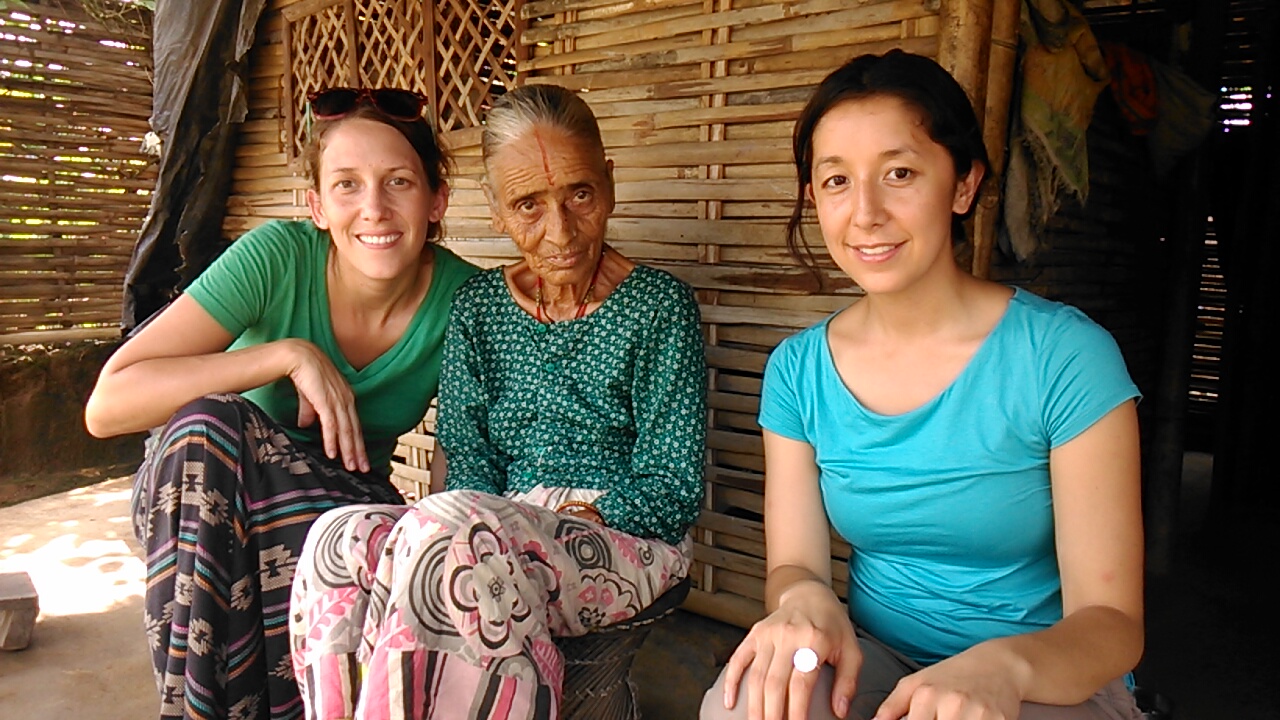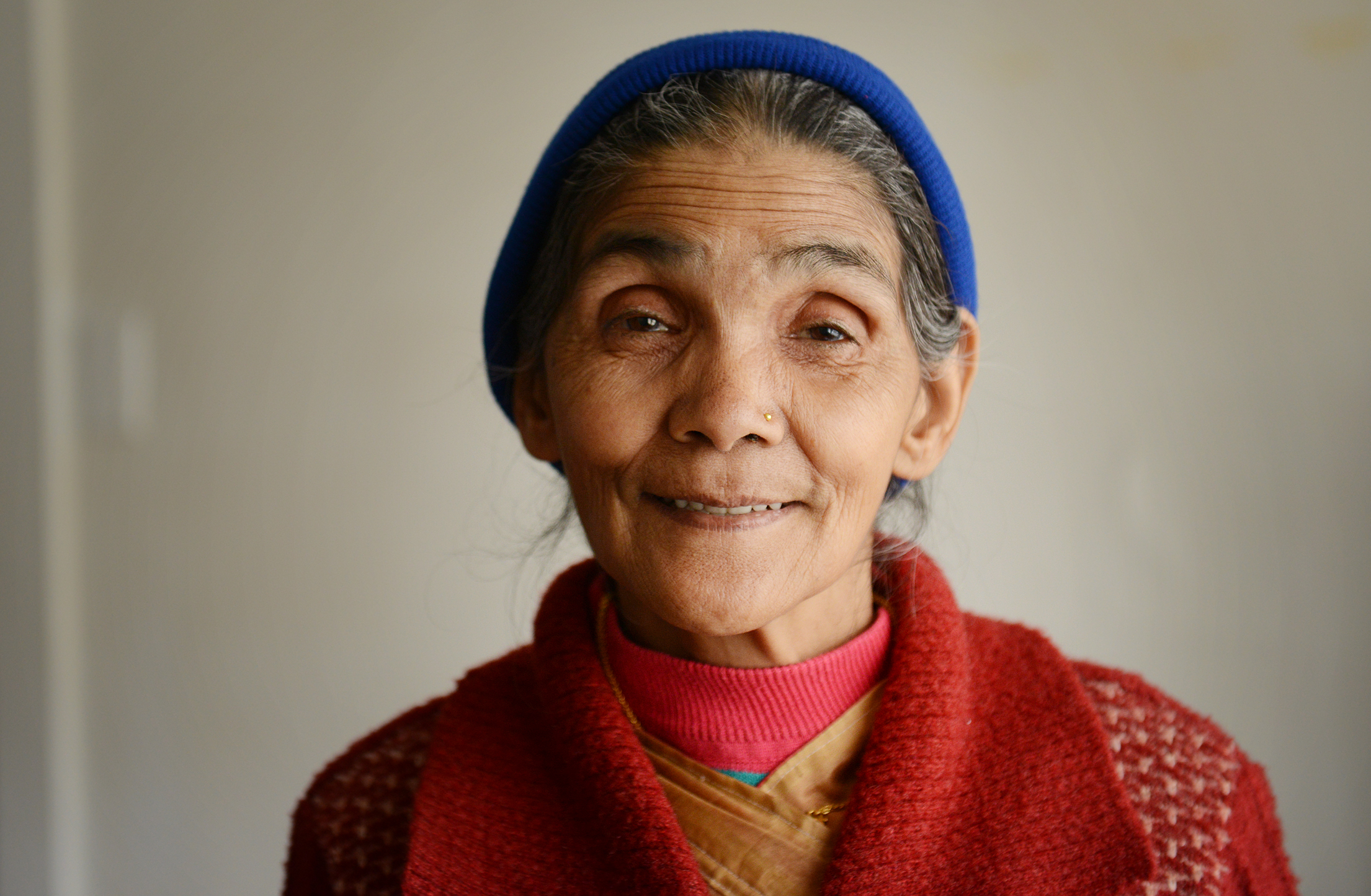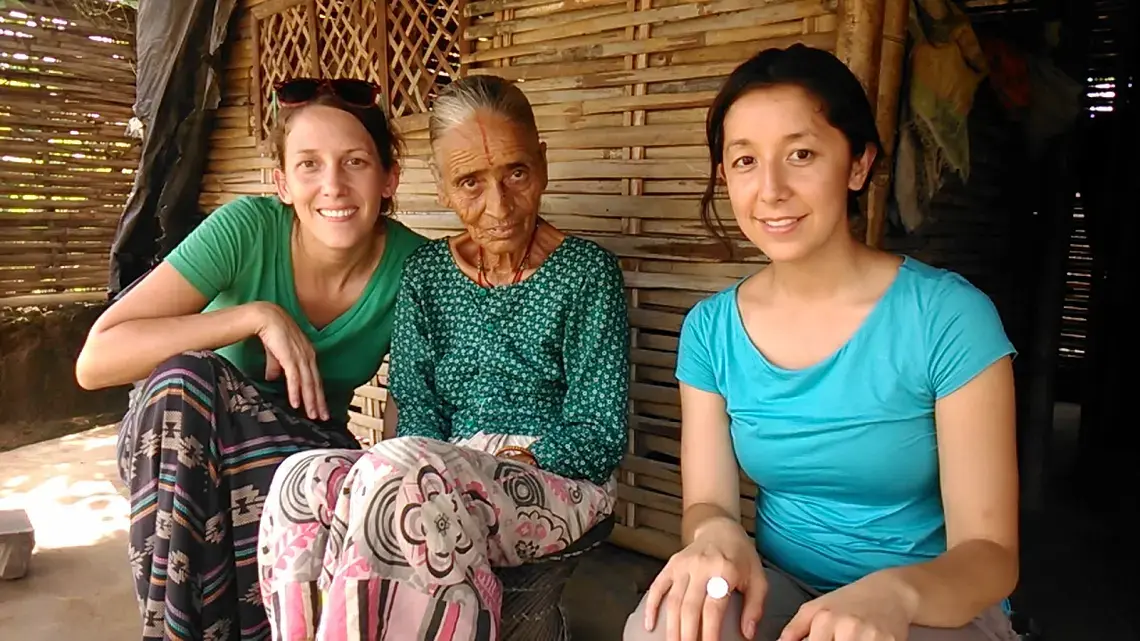The Nepal journey of reporter Moriah Balingit and photographer Julia Rendleman began in Carrick, where Moriah reported on poor conditions in rental units where several Bhutanese families lived.
In July they spent several days reporting in refugee camps in Eastern Nepal, where exiled Lhotshampas -- ethnic Nepalis who had settled in the south of the tiny nation of Bhutan -- have lived for years. They met several people waiting to be reunited with family members in the Pittsburgh area, where there is now a large community of resettled refugees.
The Post-Gazette will present these multimedia-rich stories about the refugees online on Friday, stories that capture the refugees' experience in the camps as well as their experiences in Pittsburgh. The stories will appear in print on Sunday.
As a preview, the Post-Gazette invites you to read an account of the long and searingly hot night Julia and Moriah spent with a family in one of the camps.
******
We arrived in the smoke- and dust-choked camps in the late afternoon while the sun was still burning hot. We were quickly escorted to the Khanal household, a square bamboo hut split into a crude kitchen and three bedrooms, for our overnight stay. We were told to stay inside to avoid camp security.
"We are always happy to have you here," Dhan Khanel, the lanky patriarch of this household, told us.
By this point, photojournalist Julia Rendleman, Nepal-based journalist Pradeep Bashyal and I had been to the camps a handful of times, our visits pervaded with anxiety that camp security -- which has grown lax over the camp's two-decade existence -- would suddenly decide we weren't welcome. Technically, refugees are not allowed outside the camp and visitors are not allowed in without notifying camp security, which is staffed with Nepali law enforcement.
But the camp's borders are now somewhat porous. A spokeswoman for the United Nations Refugee Agency later told me that authorities turn a blind eye and allow refugees to come and go largely as they please. Many pick up crowded buses that run into the main city, Damak, where they work day jobs -- another practice that is technically illegal under camp rules.
Still, spending the night was a different story. We had been warned about increased crime in recent years -- there had been warnings about thefts and vague allusions to assaults on women. So when we arrived that afternoon, we were a bit on edge.
We spent the first part of the evening tucked away in the hut, worrying that camp security on their rounds would see a not-so-inconspicuous pair lugging camera gear. But as the sun drew closer to the horizon, we were told it was OK to venture out.
Ganga, Dhan's son, a 29-year-old who has few memories of life before the camp, took us on a tour. We ventured perhaps a quarter-mile from the camp -- past gawking spectators who were playing or doing chores outside -- and to a barbed wire fence that marked the camp's edge, the main road visible just past the boundary. A small set of steps had been constructed so anyone could easily traverse it.
Ganga then showed us the camp's soccer field with its bamboo posts. Soccer provides a welcome distraction to refugees, who spectate inter-camp games. He led us back to his hut -- winding down a path where bare spots of earth marked where huts had once stood. It was another reminder that the camp was shrinking -- and quickly -- with every departing bus full of refugees bound for the United States or other "Third Countries."
There is very little electricity in the camp, so nightfall ends most activities. Back at the Khanal hut, Julia and I crouched on a stiff bamboo bed in the sole room with a battery-operated light. The walls -- made of woven bamboo -- had been plastered with newsprint dipped in homemade glue, a sort of "wallpaper" meant to seal out the bugs and the noise.
But the huts are so tightly cramped that neighbors become intimately familiar with each other's business. One refugee told me he was tired of the noise and the yelling. And indeed, in the Khanel house, we could hear a woman straining over English words during a lesson, her voice carried out of her own hut and across a narrow footpath. Outside, the family's goats -- housed in a bamboo shed -- were bleating.
Inside the tiny room, we got a stream of visitors: a man heading to Kent, Wash., a family headed to Tennessee, which they called "Tennesees." Sometimes we chatted about the maladies in the camp: the drug use and the lack of employment options, since refugees are technically barred from working. Sometimes we sat silently.
After a particularly long bout of silence, Pradeep switched on BBC Radio Nepal on his phone, a global news broadcast delivered in Nepali.
"Radio," one refugee told me. "Our best friend."
In the outside world -- where there are no limits on our abilities to leave our homes, where we have electricity so our lives aren't dictated by the rising and falling of the sun, where we have televisions and computers and myriad devices to make us feel busy -- it's easy to underestimate the power of boredom. But sitting there in the half-lit room, I started to understand it a little.
Boredom breeds frustration. It breeds loneliness. According to the refugees I spoke to, it makes the allure of drugs and alcohol all the more powerful. It doesn't just exist in the darkness of night. It pervades the faces of refugees on hot afternoons as they sit outside in the afternoons fanning themselves.
Given that all but a few thousand refugees have applied to be resettled in other countries -- joining scores who have already left -- the camp sometimes feels like a giant waiting room. They're waiting for their next ration of food, for the afternoon hour on weekdays when information is posted about their resettlement status, for the day they'll be called up to head overseas to the Third Country.
After the guests had left, the Khanal mother came in to say she was so happy we were there, that she considered us "like sisters." I lay down on one of the beds shoved up against the wall, but had difficulty sleeping, wary about the bugs or mice that could be lurking there. There was also the noise: a baby crying in the distance and then an eerie chorus of howling from the stray dogs that roam the camp.
I scarcely slept before we were awakened again to go watch the World Cup match between Germany and Brazil. It was raining hard outside, but the hut's miraculously constructed roof sprung no leaks. We wandered through the deafening downpour in the dark, our path illuminated by a small flashlight, to Ganga's aunt's home, who possessed a rare television in the camp.
We huddled around the screen in the room -- a sort of enclosed porch -- and groggily tried to focus on the game, a historic shutout for the Germans. Giant spiders loomed overhead, though, and I crouched on a small bed to stay out of their orbit. Mosquitos nibbled at my feet -- the bug spray had been washed away.
A cockroach scurried across the packed mud floor, narrowly escaping the swift smack of a flip-flop. Another one -- whose body stretched at least the length of my palm -- teetered around in the homemade cabinet near the television. When I pointed at it, one of the spectators craned his neck, saw the behemoth and said, "cockroach." It was futile to try to kill them all.
I slept maybe a couple of hours -- my slumber pervaded by the constant anxiety of the critters that the refugees have learned to live harmoniously with -- before I awoke again. At 5 a.m., the rain had stopped and we climbed out of the hut to watch people line up for water. We then climbed atop a water tower near the camp's edge.
I wearily took stock of this place that so many have called home. From up high, it became apparent how vast the camp was.
Back in Pittsburgh, word had spread among our sources in the refugee communities about the pair of Pittsburgh journalists who spent the night in the camps. We were asked "How was it?"
I told them it was difficult, and awkwardly tried to convey that I could not imagine what it was like for them. The refugees who came from Bhutan hailed from a variety of backgrounds, but in their previous life, they were at least free to earn their living, own land and grow crops. Many lived in rural villages far from neighbors, so while they may not have had modern homes, they had the luxury of space.
"You spent one night there," Jiwan Siwakoti said. "We spent 18 years."

Education Resource
Meet the Journalists: Julia Rendleman and Moriah Balingit
Meet photojournalist Julia Rendleman and reporter Moriah Balingit reporting from the Lhotshampa...










